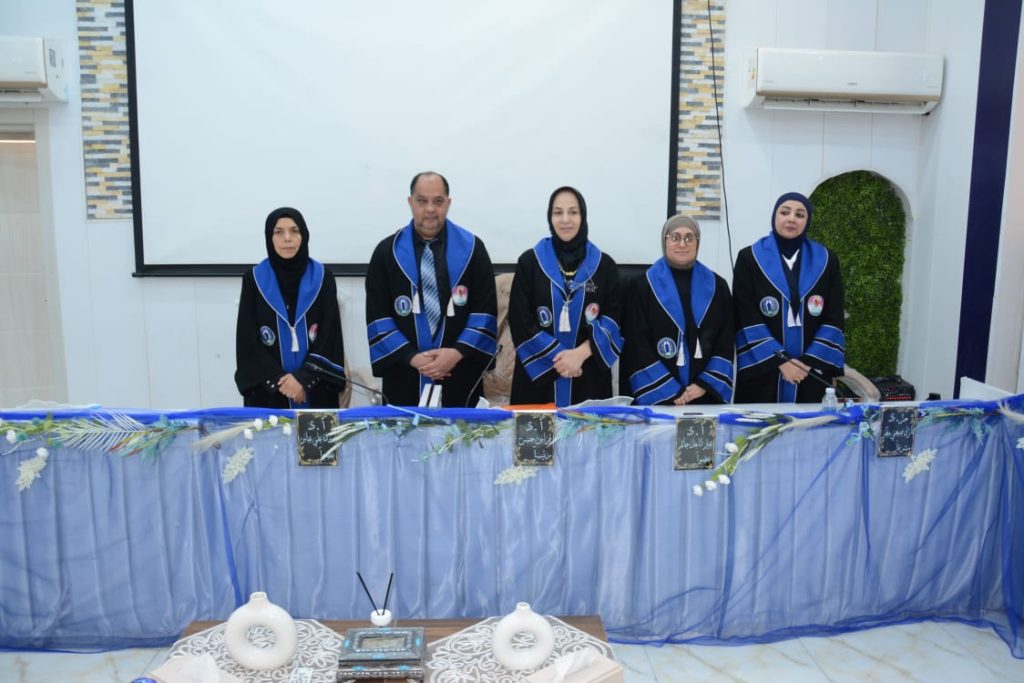A master’s thesis examination titled ” The Role of Informational Social Influence in Sports Affiliation among Players of Certain Racket Sports ” occurred at the College of Physical Education and Sports Sciences for Women, University of Baghdad.
The thesis, presented by Areej Alaa Abbas, was examined by a committee consisting of Prof. Dr. Firas Hassan Abdul-Hussein (University of Basra)—Chair, Prof. Dr. Warda Ali Abbas—Member, Prof. Dr. Abeer Dakhel Hatem—Member, and Asst. Prof. Dr. Nazek Subhi Matar—Supervisor.
The research aimed to: Achieve a comprehensive understanding of the role of informational social influence in sports affiliation and improving the sports experience among racket sports players. Develop a scale to measure informational social influence for racket sports players. Identify the degree of informational social influence and the level of sports affiliation among racket sports players. Determine the percentage contribution of informational social influence to sports affiliation in racket sports players.
The researcher concluded that informational social influence plays a role in sports affiliation among racket sports players, as athletes rely on information from their social environment (family, friends, coach, spectators). The more credible these sources are, the higher the level of affiliation. Modern media can enhance informational influence by providing an environment for interaction and engagement between players, the sport itself, and sports fans. The informational social influence scale proved valid in measuring the role of societal and informational factors, as well as information sources, in determining athletes’ affiliation with the sports they practice.
The researcher recommended using the informational social influence scale validated in this study, and emphasized the importance of focusing on athletes’ psychological aspects in addition to their technical skills—an area requiring further research to develop strategies that strengthen this crucial component of sports performance. Consequently, the study’s findings can benefit coaches, sports psychologists, and sports administrators in designing educational and guidance programs aimed at fostering sports affiliation by leveraging positive social influences in sports environments.
This discussion contributes to achieving one of the Sustainable Development Goals—Goal 4: Quality Education.
